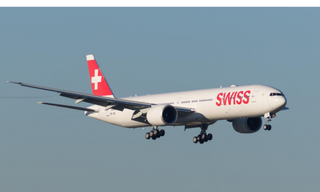Porsche: 911 Remains Profit Engine
Porsche delivered a solid financial performance in 2024 despite mounting challenges, particularly a slowdown in China and the sluggish adoption of electric vehicles.
The German sports car manufacturer managed to compensate for weaker demand in the world’s largest automotive market with strong sales in four out of five world regions, reinforcing its position as a leader in the high-end automotive segment.
On Wednesday, the annual results were presented to investors and media by CEO Oliver Blume and CFO Jochen Breckner, who outlined the company’s strategic adjustments and financial outlook.
China Drags Performance
Porsche recorded an operating profit of 5.6 billion euros, a notable decline from the 7.3 billion euros posted in 2023, with revenues slipping slightly to 40.1 billion euros from 40.5 billion euros. The company’s operating return on sales dropped to 14.1 percent, down from 18 percent the previous year. A critical factor in this performance was the weakness in China, where the economic environment and intensifying competition from local EV manufacturers put pressure on sales.
However, Porsche’s resilience shone through elsewhere. Sales in Europe, Germany, North America, and emerging markets reached record highs, allowing the company to nearly offset the drop in Chinese demand. Porsche delivered 310,718 vehicles globally, with the Cayenne leading the pack at 102,889 units, followed by the Macan (82,795) and the 911 (50,941).
911: Small Share, Big Profits
The Porsche 911 remains one of the company’s most cherished models, both in terms of brand identity and financial contribution. During a conversation with finews.com, Porsche’s new Chief Financial Officer, Jochen Breckner, who assumed the role only weeks ago, underscored the significance of the 911’s profitability. While the model accounted for 16 percent of total vehicle sales, Breckner emphasized its margin contribution, stating, «We like the 911 very much.»
To further capitalize on the 911’s brand power, Porsche is set to expand its lineup of high-margin derivatives. This includes a new limited-edition Heritage Design model, reviving the style of the 1970s, as well as additional flagship variants aimed at elevating the benchmark for high-performance sports cars.
Recalibrating the Electrification Strategy
Porsche’s 2024 results also reflect a strategic pivot in its approach to electric mobility. The company has abandoned its ambitious target of achieving 80 percent full-electric sales by 2030, acknowledging a longer-than-expected transition phase in global markets. Instead, Porsche is doubling down on a balanced mix of drivetrains. As the company reaffirmed in its press statement: «Its customers will still be able to choose between combustion engines, plug-in hybrids and all-electric drivetrains in every vehicle segment well into the 2030s.»
This recalibration includes the introduction of additional plug-in hybrid and combustion-engine models, a move that highlights the brand’s commitment to flexibility. The Macan, for example, will transition fully to an all-electric offering, while a new SUV model is being considered with hybrid and combustion options to cater to evolving customer preferences.
High-End Customization as a Revenue Driver
Porsche is also ramping up its highly profitable «Sonderwunsch» (Special Request) program, catering to affluent customers who demand bespoke vehicles.
Over the past five years, average revenue per vehicle from Porsche Exclusive Manufaktur options has doubled, and the company plans to further expand its capacity to accommodate growing demand for tailor-made sports cars.
Cost-Cutting Programme
In response to ongoing market challenges, Porsche has initiated a comprehensive cost-cutting programme aimed at streamlining operations and enhancing efficiency. The company plans to reduce its workforce by 1,900 positions by 2029, leveraging natural turnover and voluntary measures such as partial retirement packages. Additionally, another 2,000 fixed-term contracts will expire without renewal. These measures are intended to reinforce Porsche’s financial resilience while maintaining its commitment to product innovation.
Despite its ability to navigate economic turbulence, Porsche still faces a challenge in convincing investors of its long-term strategy. Shares fell between four and five percent in early trading following the earnings announcement, reflecting investor concerns over profitability and growth prospects.
Investors Not Happy
Looking ahead, the company has set a medium-term operating margin target of 15 to 17 percent, with the goal of reaching at least 15 percent by the end of this decade.
CFO Breckner acknowledged the headwinds but remained optimistic, stating, «We are consciously setting out on a comprehensive recalibration and sustainably strengthening Porsche for the future.»





































